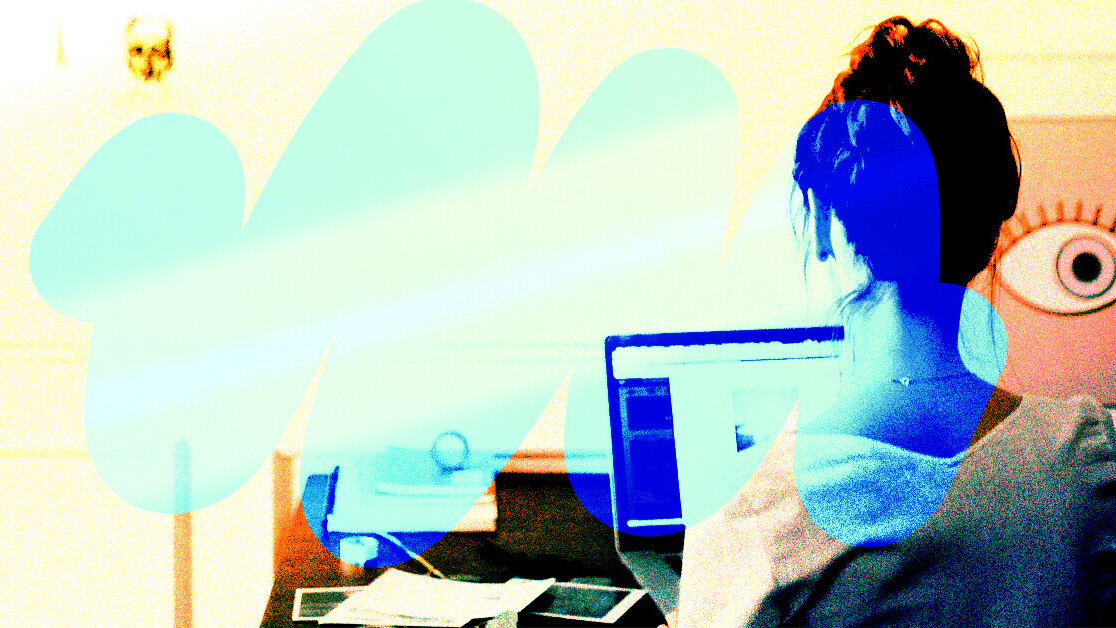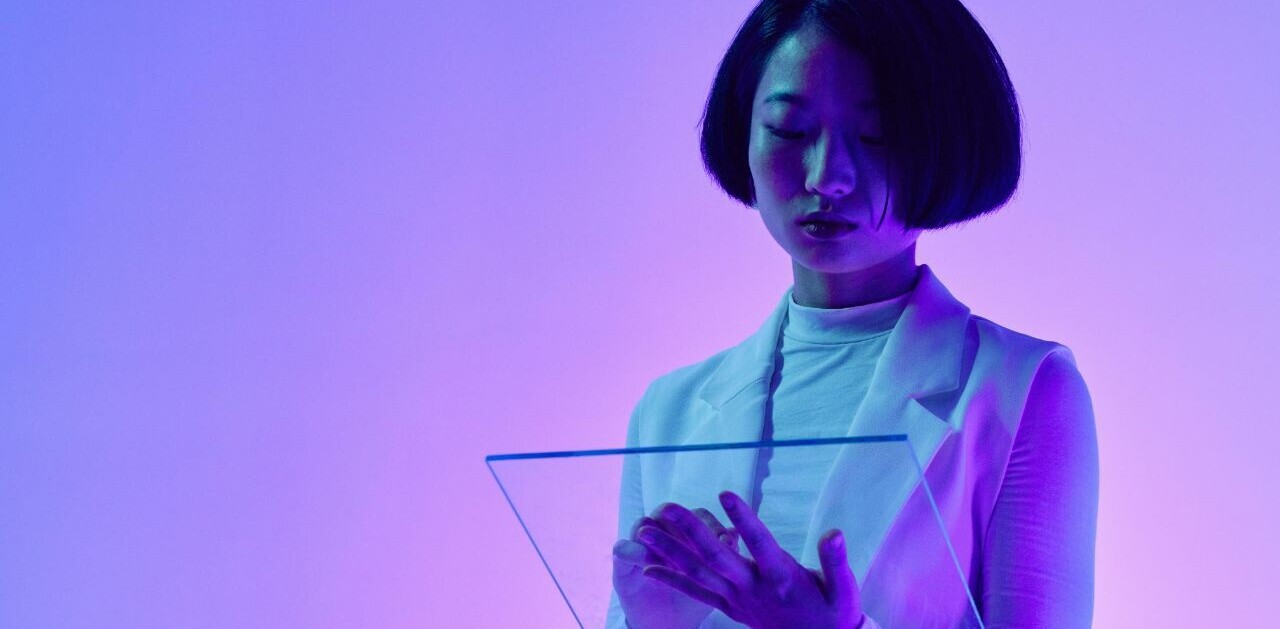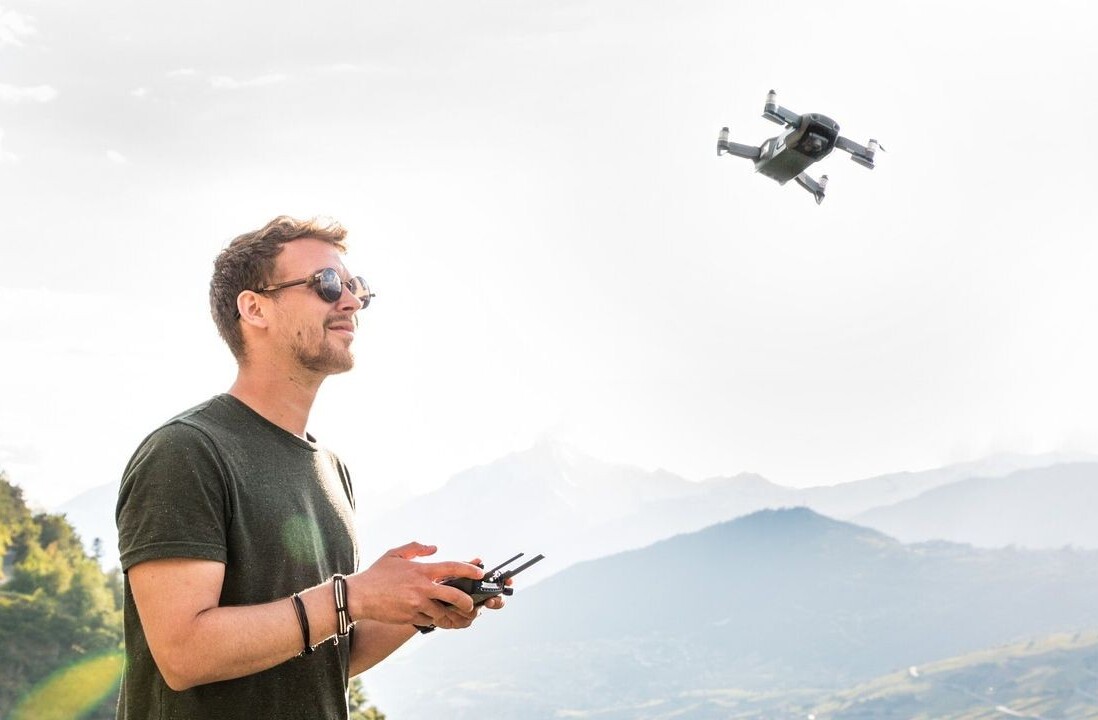
Moodi will be speaking at Transform on July 2, TNW’s online couch conference on business innovation. Get your tickets here.
In the process of forming the UN after World War II, Winston Churchill said “never let a good crisis go to waste.” Of course, the human cost of a crisis cannot be ignored. At the same time, a crisis can spark progress in a way that people otherwise can’t (or don’t) choose to enact.
In the lockdown that has resulted from COVID-19, space has been created in a very literal sense. Social distancing is generating the ‘six-foot economy’ where people have to keep a physical distance from one another. Such measures mean there is less of a herd effect and people are diverging from the collective whole into separate thinkers. This gradual movement towards singularity is subsequently having a profound effect on how we foster and apply creativity.
Many businesses have been forced to go back to the drawing board and start with a blank state. The empty canvas mentality is facilitating creativity because people are discovering that they can experiment more freely and deeply. Whether starting from scratch or simply choosing to accelerate in the current environment, creativity is flourishing across society.
Changing tides around the world
According to Szabolcs Keri from the National Institute of Psychiatry and Addictions, “creativity is related to the connectivity of large-scale brain networks […] How brain areas talk to each other is critical when it comes to originality, fluency and flexibility.” Creativity isn’t something we’re born with — it’s a science nurtured by the right conditions, and sometimes, the conditions you least expect.
During COVID-19, the slowing down of processes and bureaucracy has eliminated time-consuming tasks and the noise of accepted (yet inefficient) protocols. There is now room for existing political, social, and economic agendas to be meaningfully disrupted, and for people to openly innovate.
Already, governments are seizing the opportunity. In Amsterdam, Dutch officials are planning to apply a ‘doughnut model’ to revive the economy once COVID-19 subsides. Beyond economics, the model aims to better meet the needs of people and the planet, and to actively be more sustainable. Had the pandemic not occurred, such a decision may have taken decades to action.
Meanwhile, religion is also changing. With religious centers being forced to close during the lockdown, masses and sessions of worship are being broadcasted live online. For example the Central Synagogue — home to one of the largest Jewish congregations in North America — streamed Easter Mass and has weekly Shabbat services, plus on-demand options for past services.
Formula 1 has taken advantage of the online shift too. Professional drivers like Max Verstappen have been drawing crowds on YouTube and Twitch by taking part in esports competitions. In light of the Australian Grand Prix and races around the world being cancelled because of lockdown, the virtual races have been a welcome alternative for F1 fans.
Even the justice system has been creatively reworked. The COVID-19 shutdown forced Supreme Courts around the world to close, leaving decisions about ongoing cases unclear. In response, video conferencing is being used to stream the proceedings with all participants via official court websites, and judgements are delivered live, in real time.
The UK, China, Brazil, and Singapore have all adopted this new digital framework – which took only a fortnight to fully implement. In England and Wales, more than 80% of the countries’ caseloads have now been handled remotely.
The power of one
On a more micro level, working from home eliminates the day-to-day distractions of the office, the influence of others, and the expectation of certain routines. People have more physical space and are finding that their mental and emotional thinking isn’t polluted by office distractions. In fact, my clients tell me on a daily basis that they feel more productive and creative.
The trend isn’t coincidental either. Research from the University of Buffalo shows that social withdrawal is positively linked to creativity. Just two hours of silence a day prompts cell development in the hippocampus — the region of the brain related to the formation of memory. Such development is crucial considering that creativity is the art of deriving from the old to make the new.
Being alone gives people the autonomy to explore ideas, pathways, and value. From a business perspective, it also provides the space to listen and rethink customer needs and market changes in a particularly powerful way. Time alone facilitates the broadest possible kind of thinking, where people can truly diverge from their previous norms and begin discovering.
If you can cast your mind back to the days of office life, how often was your schedule filled with requests for group brainstorming and peer activities? In contrast though, Leigh Thompson, expert in creative thinking, asserts that group ideas only come in the first half of brainstorming sessions, and after that, creativity is stunted. To assume that putting heads together is the only path to innovation is to misunderstand what fuels creativity in the first place.
Keeping momentum for the future
Studies from McKinsey demonstrate how consumers are hesitant to return to some of the in-person activities that were part of their daily lives before the pandemic. In the shifting dynamics of creativity, the world has to consider how to maintain the momentum it has garnered along the way. The sense of urgency that is currently driving the new wave of creativity could easily go to waste if we do not incorporate into the ‘new normal.’
For example, data around the environmental impact of society and businesses shutting down present options to dramatically slow climate change. There is huge potential for innovative measures to maintain the decline in carbon emissions that is currently happening — but we have to cultivate the creativity we’ve recently tapped into.
Likewise, COVID-19 has shown that there is a clear need for an early warning system in place for future crises. The World Health Organization is already proposing the comprehensive model EPI-BRAIN, a platform that uses big data and AI to predict outbreaks and mitigate the spread. However, building worldwide trust in such a model will certainly require creative marketing.
Separate to governments and people, brands have to consider how to move forward with the permanent change in consumer priorities. Companies need to find ways to realize the ‘power of one’ when people do eventually return to offices and teamwork is restored.
No doubt, the challenging nature of the market downturn will teach businesses how to be more diligent and how to carry that mentality with them moving forward. At the same time, humility, authenticity, and honesty matter more than ever.
“Without great solitude, no serious work is possible”
New thoughts, hypotheses, and narratives are not only defining how we experience COVID-19 but how we grow from it. Creativity is integral to that growth, and like every skill, creativity requires practice — and COVID-19 has curated the headspace for people to practice regularly without disruption.
Just as remote work and virtual events are poised to be part of the ‘new normal’, questions such as ‘how might we?’, ‘why should we?’, and ‘what would happen if we?’ will be integral in a post-pandemic world. If society can utilize the new fertile ground, embrace the power of one, and commit to maintaining momentum, real change is not merely possible, but probable.
As Pablo Picasso once said: “without great solitude, no serious work is possible.” The world then, picks up a brush and gets ready to paint a creative masterpiece.
Get the TNW newsletter
Get the most important tech news in your inbox each week.




